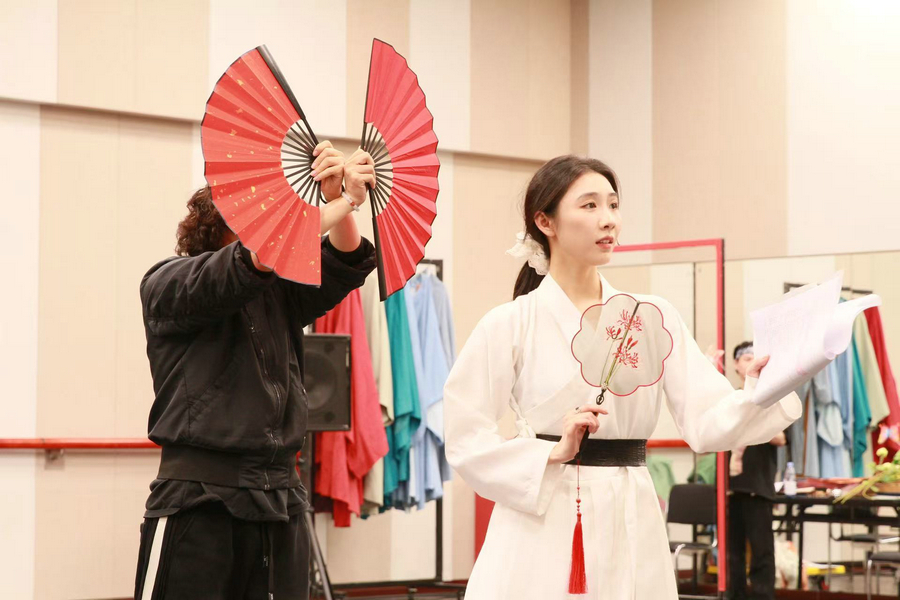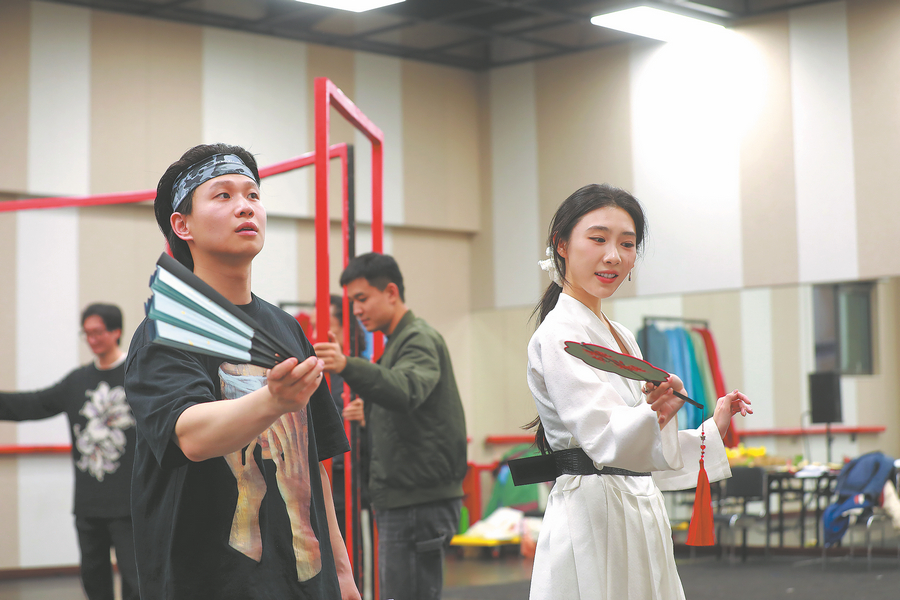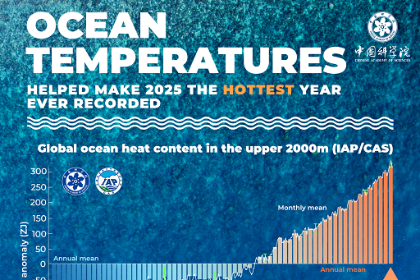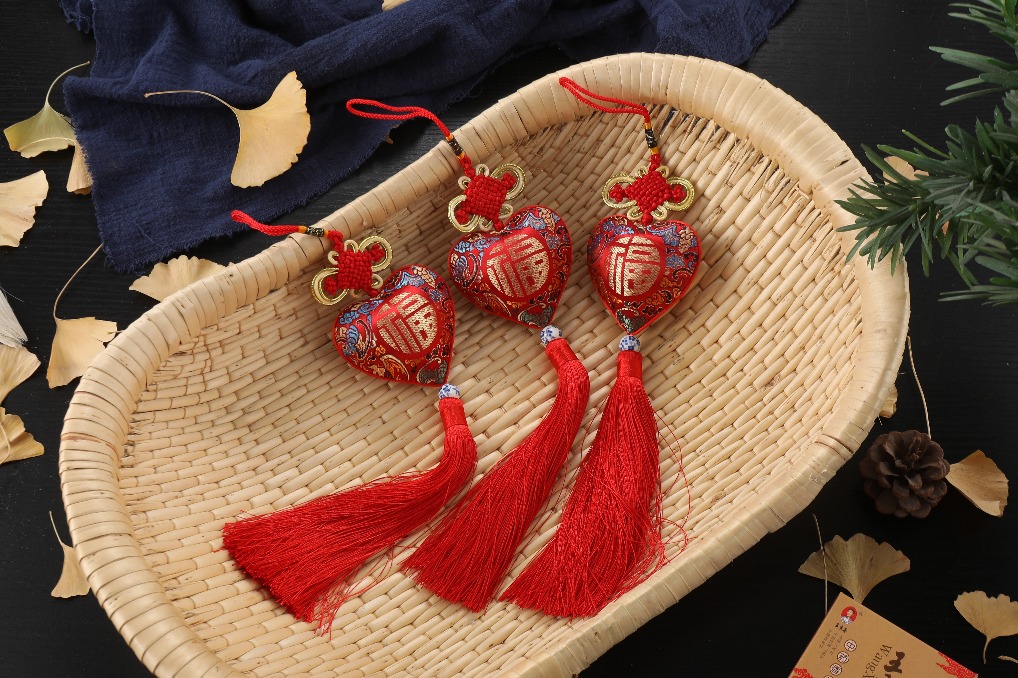Where dreams come alive
At the National Theatre of China, Tang Xianzu's timeless tale is transformed into a meditation on desire and the power of love to transcend life and death, Chen Nan reports.


When Gao Leilei first encountered The Peony Pavilion, the Ming Dynasty (1368-1644) play by Tang Xianzu, she was captivated by its romance, its passion and its tragic beauty. But as she delved deeper into the life of the playwright and the turbulent era in which he wrote, her understanding of the work evolved.
"What I found was not just a tale of love, but an exploration of something more profound — the idea of 'love in a dream'. A love that exists not in the physical world, but in the intangible, the unseen, the unreal," says Gao, director at the National Theatre of China.
The Peony Pavilion will make its debut at the theater from Nov 5 to 9 and Nov 12 to 16 for 10 shows, with Gao's interpretation offering a fresh take on the classic.

"The love between Du Liniang and Liu Mengmei is not merely physical; it's a longing of the soul. It's a desire so pure and intense that it transcends life itself. Du dies in her dream, but her love for Liu does not. It exists beyond the confines of reality, and in her death; it is reborn," Gao says.
For Gao, this "dream love" is the core of the play. In her adaptation, it is the invisible thread connecting the material and the spiritual, the real and the imagined.
In the story, Du Liniang, a beautiful young woman who lives in a time when women were often confined by rigid expectations of virtue, family duty and submission to social norms, falls in love with Liu Mengmei, a handsome scholar, whom she meets in a dream.
After waking, her longing for him becomes so overwhelming that she dies from unrequited passion. In the underworld, Du persuades a judge to grant her permission to return as a ghost so she can find him. After locating him at the temple where she is buried, their love affair rekindles. Liu's love is so powerful that when he opens her coffin, she comes back to life, and they live happily ever after.
























